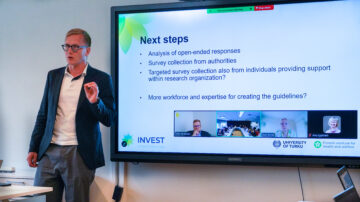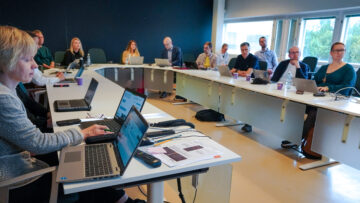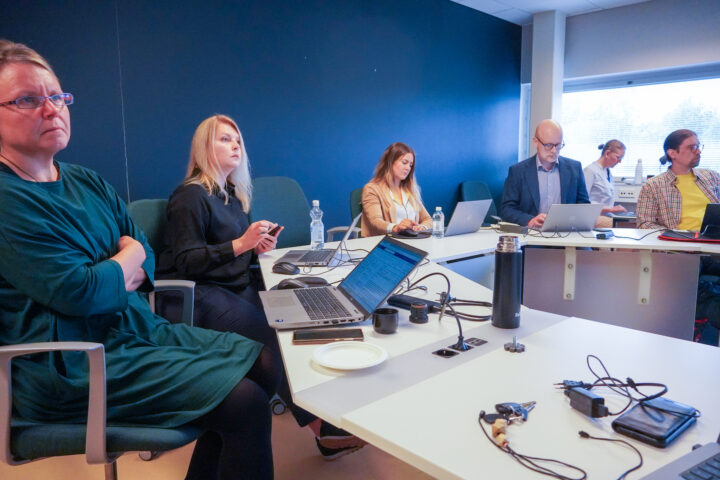FIRE project boosts Finnish register-based research and strengthens its international position
A new infrastructure called FIRE is being built in Finland to accelerate the use of administrative registers for research. FIRE develops register-based datasets, trains researchers to use them, and streamlines permit processes, opening up new research opportunities. This reform supports both scientific research and evidence-based policy-making.
The FIRE consortium, short for the Finnish Infrastructure for Register-Based Research, builds on the FIONA remote access system for register-based research, which Statistics Finland launched in 2010 for register-based research.
The use of FIONA has steadily increased since its creation in 2010. Today, it serves 1,300 researchers working on 290 research projects, with 150 registered organisations.
“The FIONA user community is one of the largest—if not the largest—research infrastructures in Finland. The need to utilise registers in cutting-edge research and policy-making will grow rapidly in the coming years. Our goal is to make the system more scalable and technically efficient, while also strengthening expertise, ethics, and impact in register-based research,” says Professor Jani Erola, Director of the FIRE project and of the INVEST Research Flagship Centre at the University of Turku.
The development work involves extensive collaboration. The FIRE consortium includes the University of Turku, Statistics Finland, Aalto University, Tampere University, University of Eastern Finland, University of Helsinki, University of Jyväskylä, and VATT Institute for Economic Research. External members already include the Finnish Institute for Health and Welfare (THL), LUT University, and the National Archives of Finland, with opportunities open for additional partners. The project is funded by the Research Council of Finland.
“With FIRE, researchers will have access to more extensive and up-to-date datasets, remote access will be easier, and research will move faster,” Erola explains.
The aim of the development work is to restore Finland to the forefront of register-based research. Finland has previously been a global pioneer in register-based research in social sciences, but others have caught up, and in some cases, moved ahead.
Strong international cooperation is also driving progress in the field. Current partners include, for example, the European Social Survey (ESS) and the Survey of Health, Ageing and Retirement in Europe (SHARE).
Research results help develop society
FIRE primarily serves high-level research in the social, behavioural, and health sciences, but its benefits extend to other fields as well.
“Register data provide us information about citizens demographic, social, and economic activity, and the use of services,” Erola says.
The results of register-based research support public decision-making. Registers can reveal, for instance, why some children fall behind in school, how social policy decisions work in practice, or what effects healthcare reforms have on different population groups.
“FIRE improves researchers’ ability to conduct register-based studies. Thanks to remote access, researchers can use the latest datasets without their institutions having to invest in expensive equipment, since they can work from their own computers. FIRE also enables sharing code with other researchers in larger research environments. All of this leads to higher-quality research,” Erola points out.
The need for improvement is great: currently, researchers spend an estimated 95% of their time preparing register data for analysis. FIRE will significantly accelerate this process, speeding up research.

“Our goal is to create the world’s best remote access environment for register-based research, develop usable register datasets, improve metadata, and train top-level register researchers,” says Professor Erola.
FIRE enables more accurate data while protecting privacy
The need for new register data has grown as traditional surveys have lost their reliability. Whereas in the best of times up to 60 percent of those surveyed responded, the response rate today is around 20 percent at best.
Register-based research provides access to extensive datasets without the usual non-response or measurement errors. Researchers can, for example, link data about the same person from different registers and combine them. This makes it possible to see how factors are connected and which ones influence later life outcomes.
From the perspective of individual citizens, the model protects privacy: the system keeps data anonymous, and researchers see the data of the research group as a collective mass, not as individual cases.
Development work in five task forces
The FIRE project advances through five task forces.
One of the task forces involves developing the FIONA remote access system maintained by Statistics Finland and other research services, while another involves improving the data content of existing ready-made data sets and developing new ready-made data sets by linking FIRE to data from other data controllers. The third task force creates basic training in register-based research in Finland and aims to establish a national community of register-based researchers.
One task force will examine the licensing practices and ethical assessments of Statistics Finland and other data licensing authorities operating in Finland and abroad, and will draw up uniform, step-by-step guidelines on licensing processes and ethical assessment practices.
One task force will strengthen the impact of register-based research nationally and internationally, co–ordinating funding applications, and developing data security together with register holders.

>> Read more about FIRE
>> FIONA remote access system

